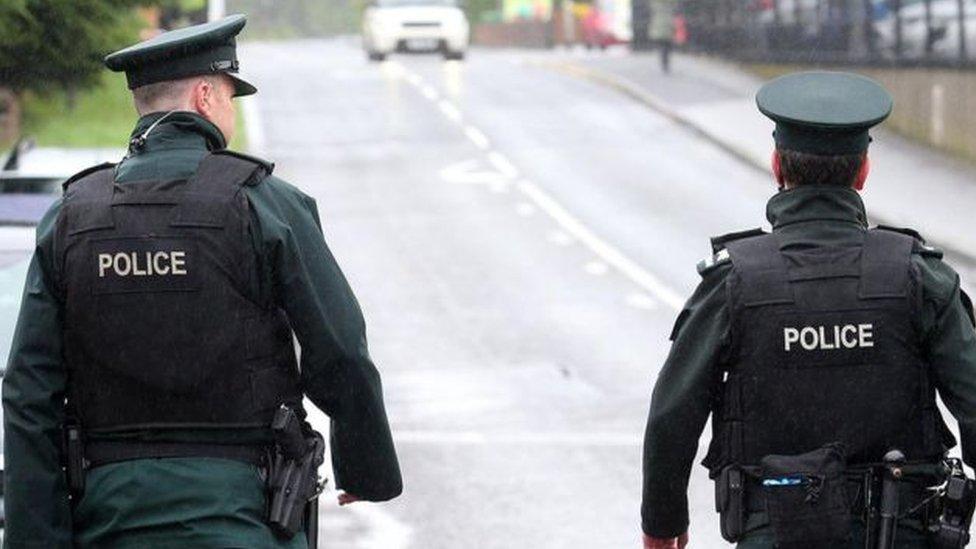Brexit: NI crime gangs 'will try to exploit Brexit changes'
- Published
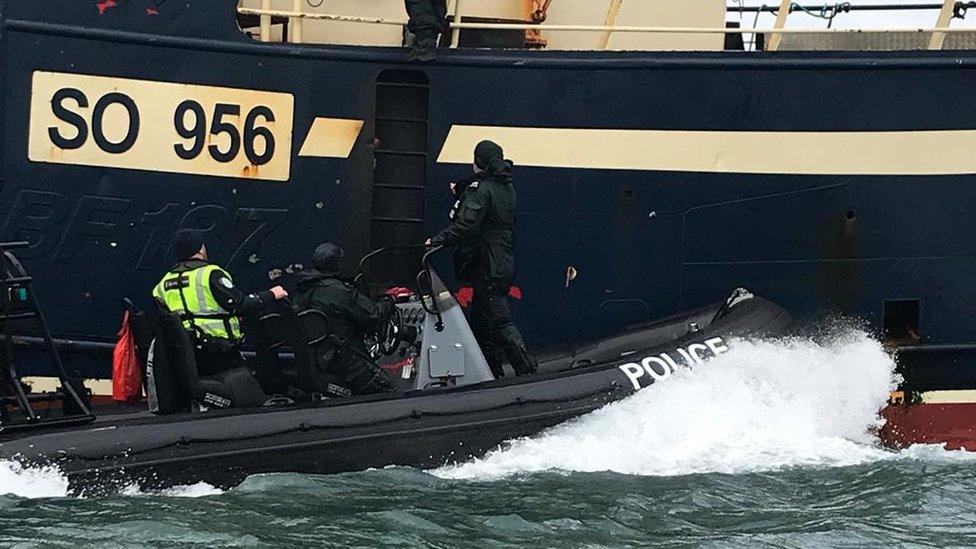
The task force warns gangs could seek to exploit new customs arrangements
There is a risk of organised crime expanding in Northern Ireland after Brexit, a new report has said.
The Organised Crime Task Force (OCTF) has warned the gangs could seek to exploit any new tariffs or other arrangements.
In its annual report, it said the no-deal scenario would lead to "potential new criminal markets for previously legitimate commodities".
But the group stressed it could counter any new threats that developed.
Brexit 'could lead to organised crime expanding in Northern Ireland'
Claire Archbold, director of safer communities at the Department of Justice said: "None of us know on what terms the UK will leave the EU but we do know that wherever there is a border, organised crime will try to exploit it."
She said the task force was agile and could adapt to changes in organised crime, whether they be currency fluctuations or Brexit.
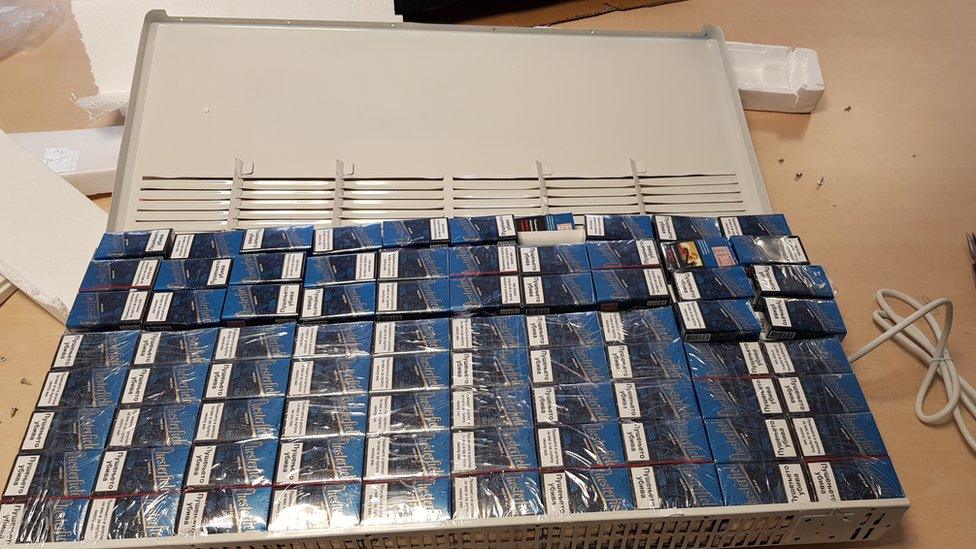
These cigarettes were found being smuggled inside a radiator
The task force, which includes the Police Service of Northern Ireland (PSNI), An Garda Síochána (Irish police), the Department of Justice and Her Majesty's Revenue and Customs, revealed a number of successes against organised crime gangs in 2018/19.
Its members recovered about £1.4 million of criminal assets through confiscation orders and seized one million cigarettes, 9.2kg of class A drugs and 36.5 kg of cannabis.
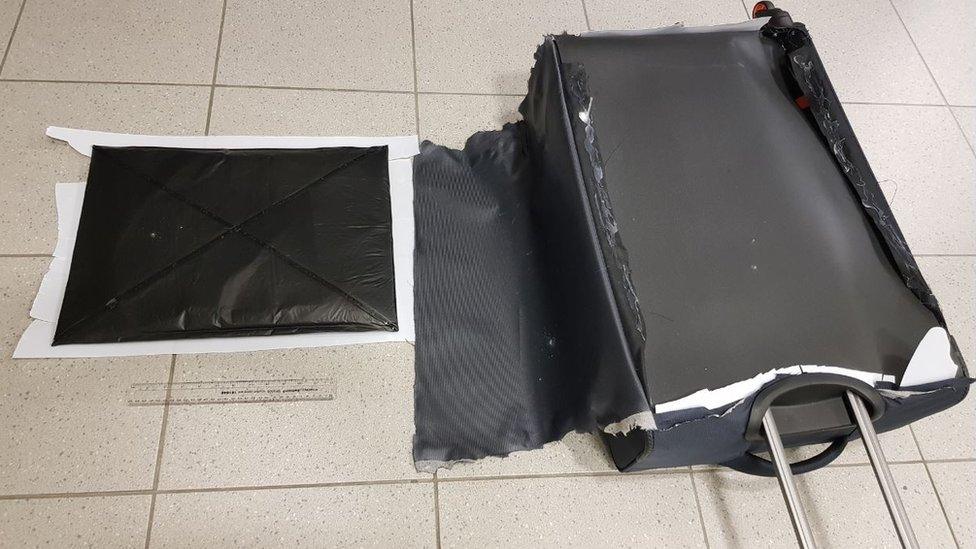
The Department of Justice released a number of photographs, including this one of cocaine concealed in luggage
They believe they frustrated, disrupted or dismantled 72 organised crime groups.
Controlled by traffickers
The report also revealed 59 potential victims of modern slavery were identified and referred to a national scheme for assistance.
PSNI Det Ch Insp Richard Campbell said vulnerable people were being brought into Northern Ireland with promises of well-paid work.
"When they get here, what they find is their access to their bank accounts is controlled by the traffickers," he said.
"Their travel documents are taken by the traffickers.
"They may not even know exactly where they are in the country. In some cases they may not even know what country they are in."
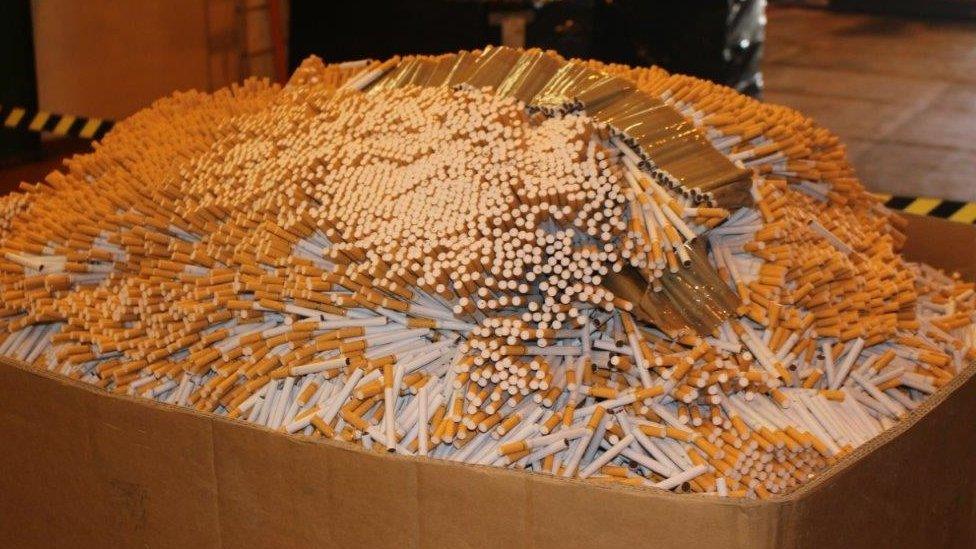
The task force seized one million cigarettes in 2018/19
Trafficked people were made more vulnerable by not speaking English, he added.
"They're being made to work for what may well be a legitimate pay but they're not getting that pay," he said.
"The pay is going to the traffickers."
The task force also reported that cyber-related fraud was a major growth area.
- Published16 November 2018
